Outreach & Science Communication
University of Washington Planetarium Coordinator
It is my great privilege to introduce myself as the new graduate student planetarium coordinator at the University of Washington. I am thrilled to be in this position and cannot wait to keep building on the momentum that previous coordinators worked so hard to create.
The planetarium at the University of Washington utilizes state-of-the-art projectors and software to display stunning visuals of the cosmos using open-source software. In a given year, our planetarium gives 150 free public planetarium shows to local Seattle schools and communities.
As the coordinator, my role is to foster inclusive and supportive spaces for science educators to use the planetarium as a springboard for science communication, partner with local Seattle communities for volunteering opportunities, educate and inspire youth to pursue careers in STEM, and create unique planetarium shows. Click here if you would like to learn more about the UW planetarium.
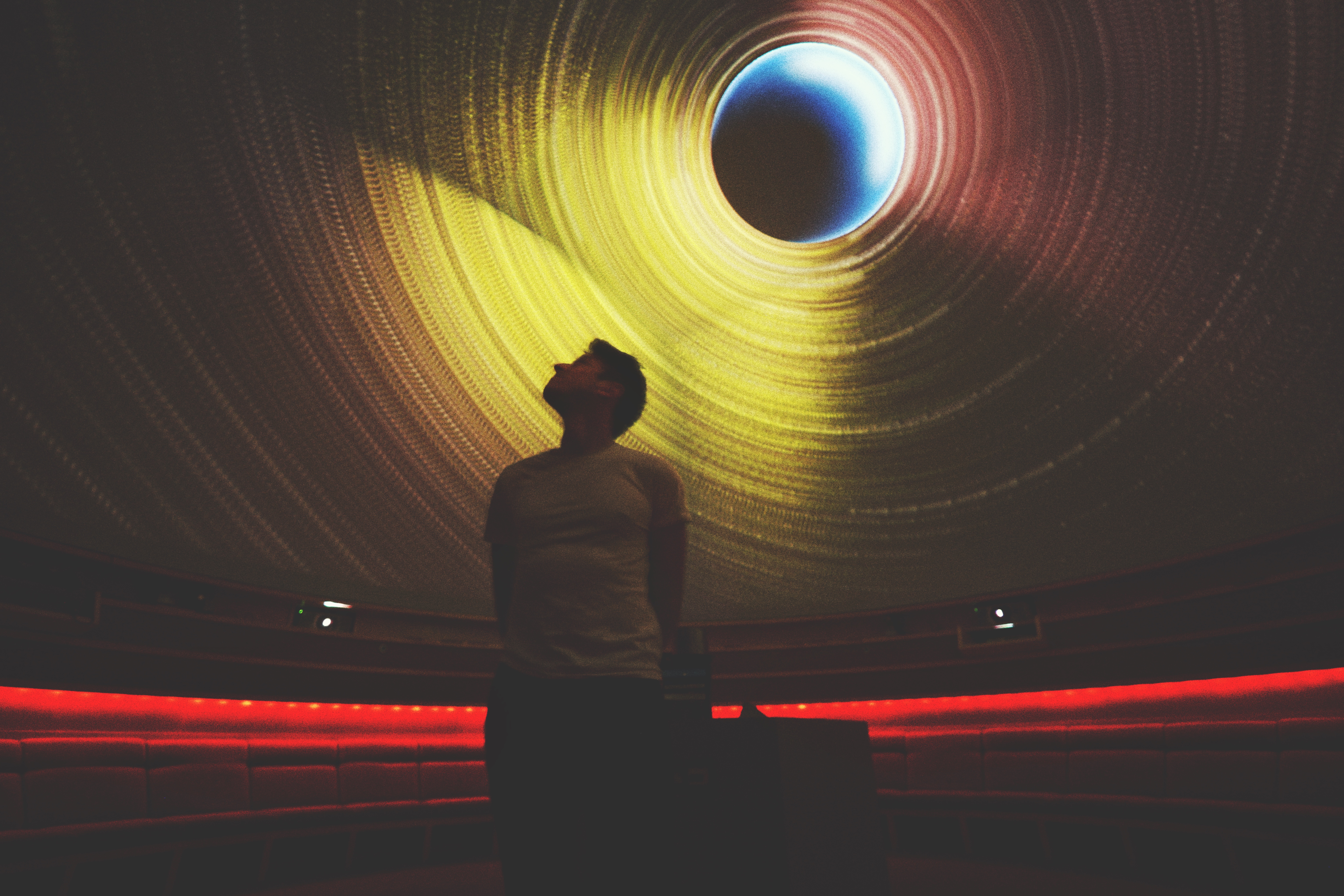
StarBites Ratio
I am the founder of the StarBites Radio podcast. Together with my peers, we started StarBites as an attempt to bring together an undergraduate community of students at Columbia University that love to talk about Astrophysics and the historical importance. StarBites Radio has developed into a community where students can come together and practice the art of science communication. We have successfully launched two seasons, covering topics from general relativity, life in the universe, and women in Astronomy.
If you’re interested in hearing more about StarBites Radio, click here to listen to our episodes and our social media. Our podcast was also featured on Bwog, Columbia’s indepedent student-run campus new site.
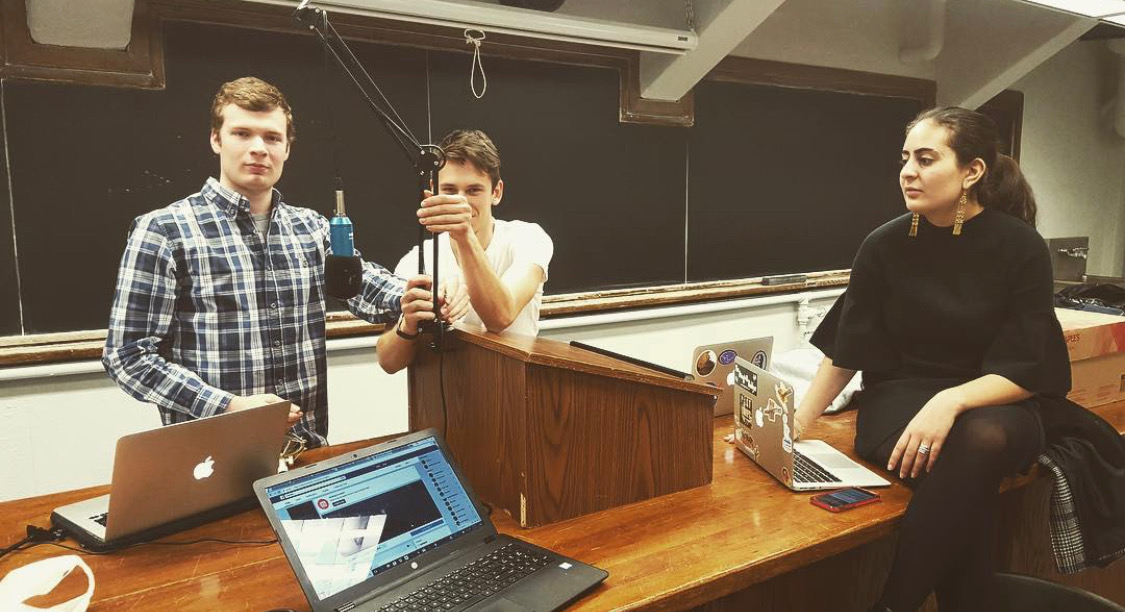
|
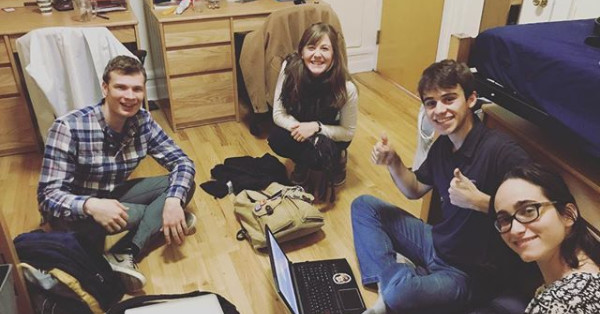
|
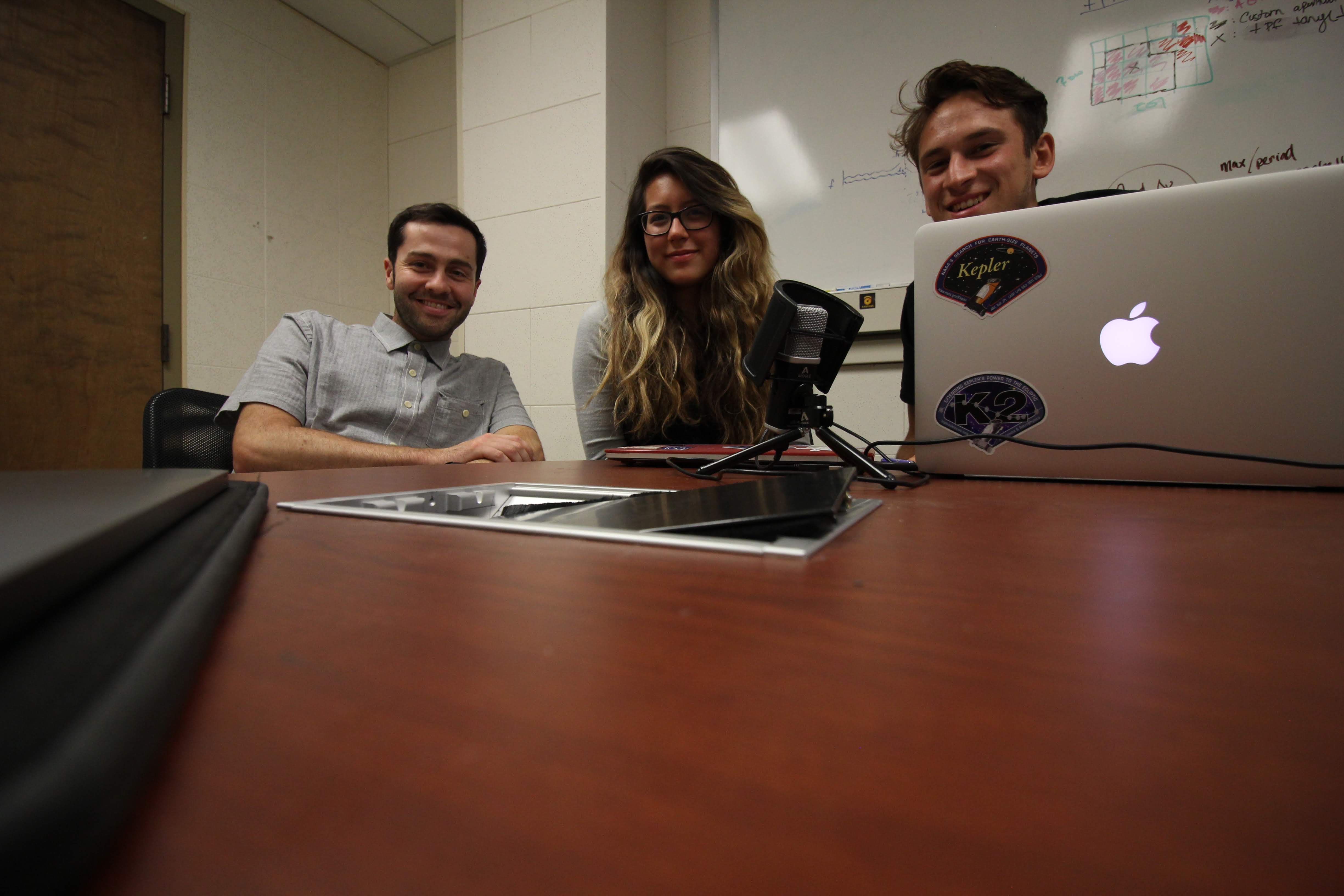
|
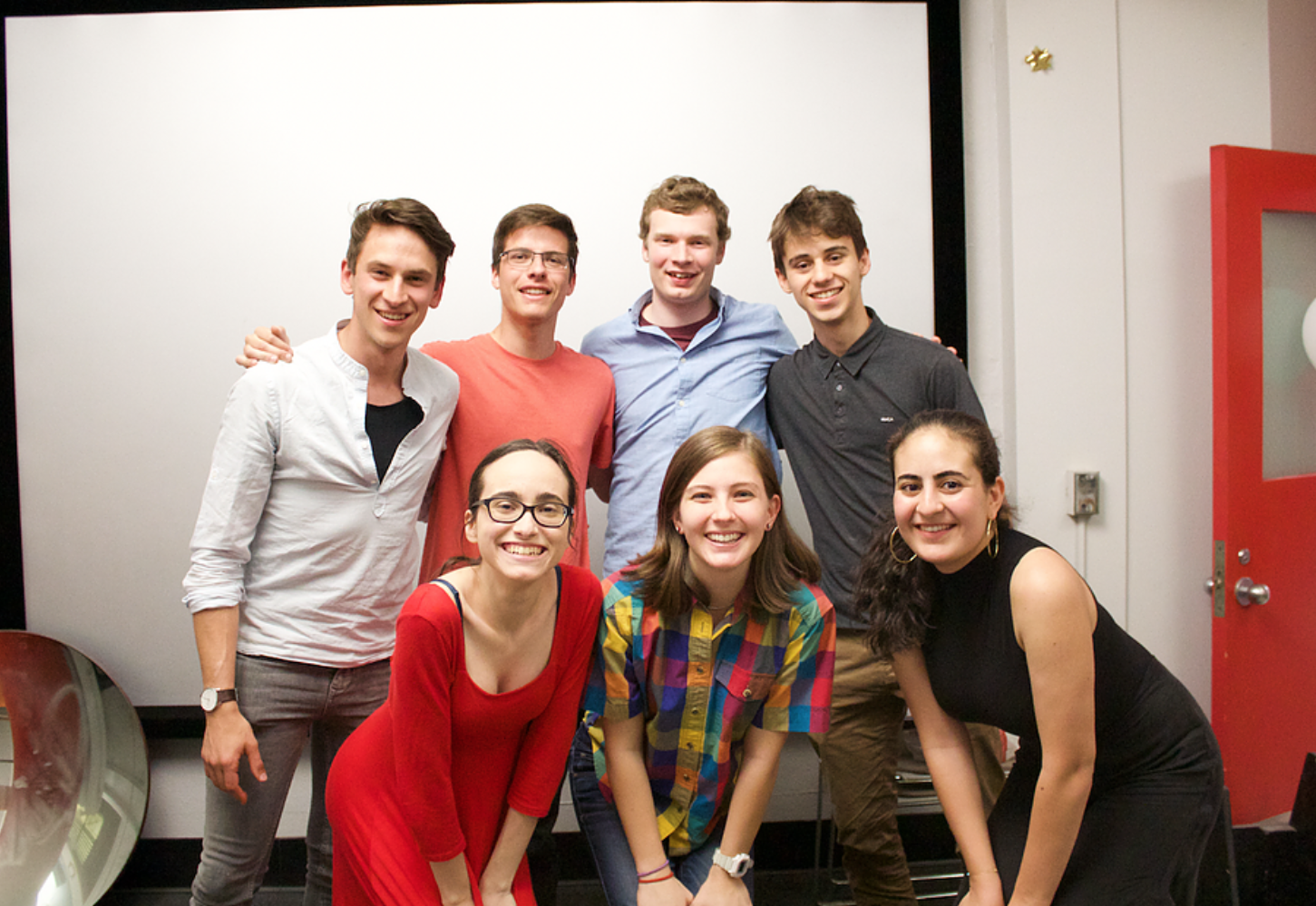
|
Astronomy Python Hackathons for Undergraduate Astronomy Students
In almost every astronomy & physics internship that involves the use of data, one of the very first tasks undergraduate students are asked to learn is how to program. During my senior undergraduate year, I partnered with GitHub’s Major League Hacking (MLH) to host our first ever undergraduate astronomy python hackathon that took place at Columbia University. The workshop aimed to foster a community where students can come together, learn how to program and analyze astrophysical data and learn how to collaborate with others with a common goal.
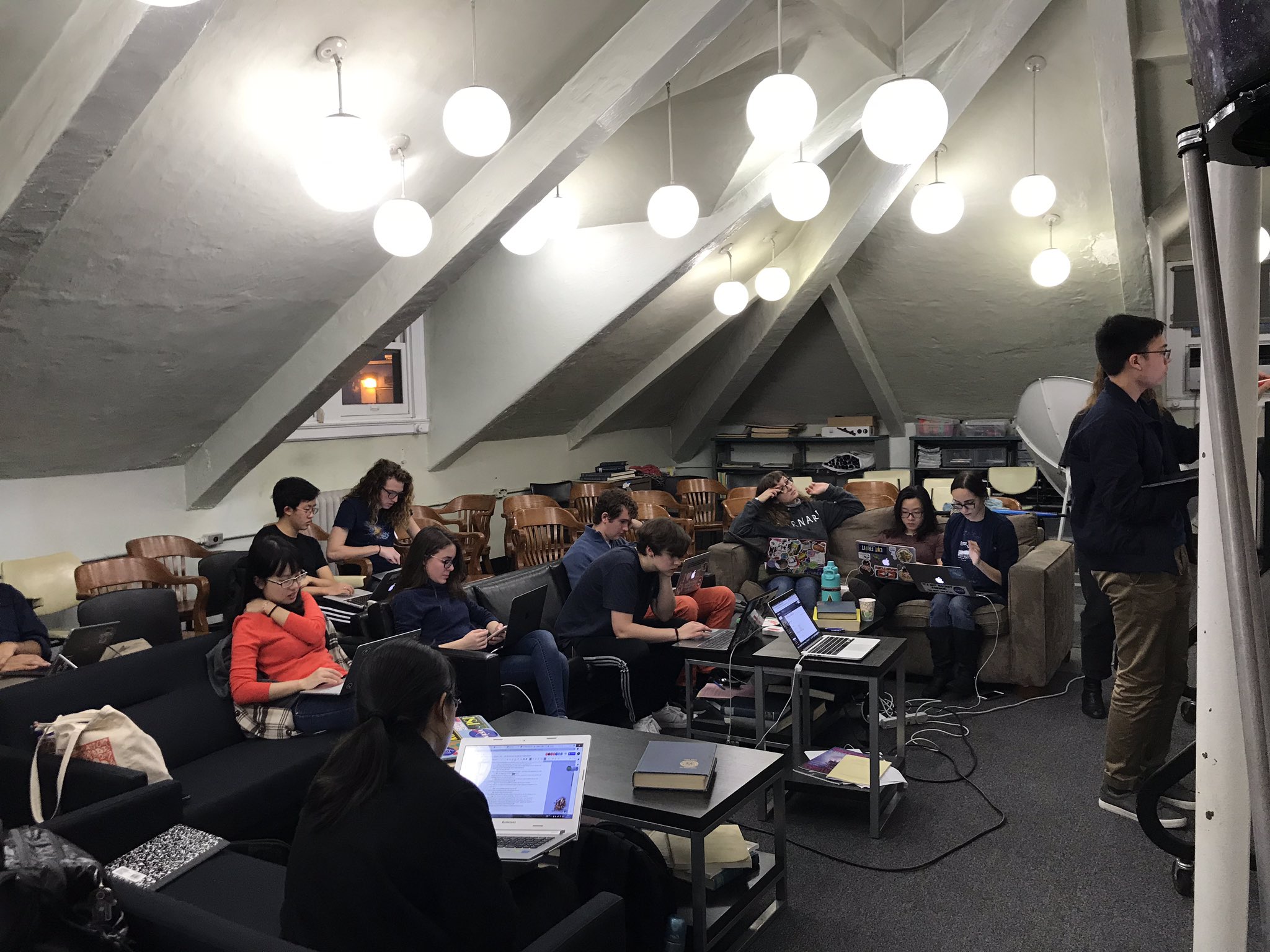 (Our first Python hackathon was hosted in our Astronomy library at Columbia University)
(Our first Python hackathon was hosted in our Astronomy library at Columbia University)
After roughly seven hours of hacking, our students were asked to present brief project slides with their groups where they discussed the outcomes of their project and that they personally learned. We had many incredible outcomes such as mapping the positions of stars in 3D using data from Gaia DR2, an interactive moon surface map with labeled craters and an attempt to build from scratch an N-body simulator using python.
